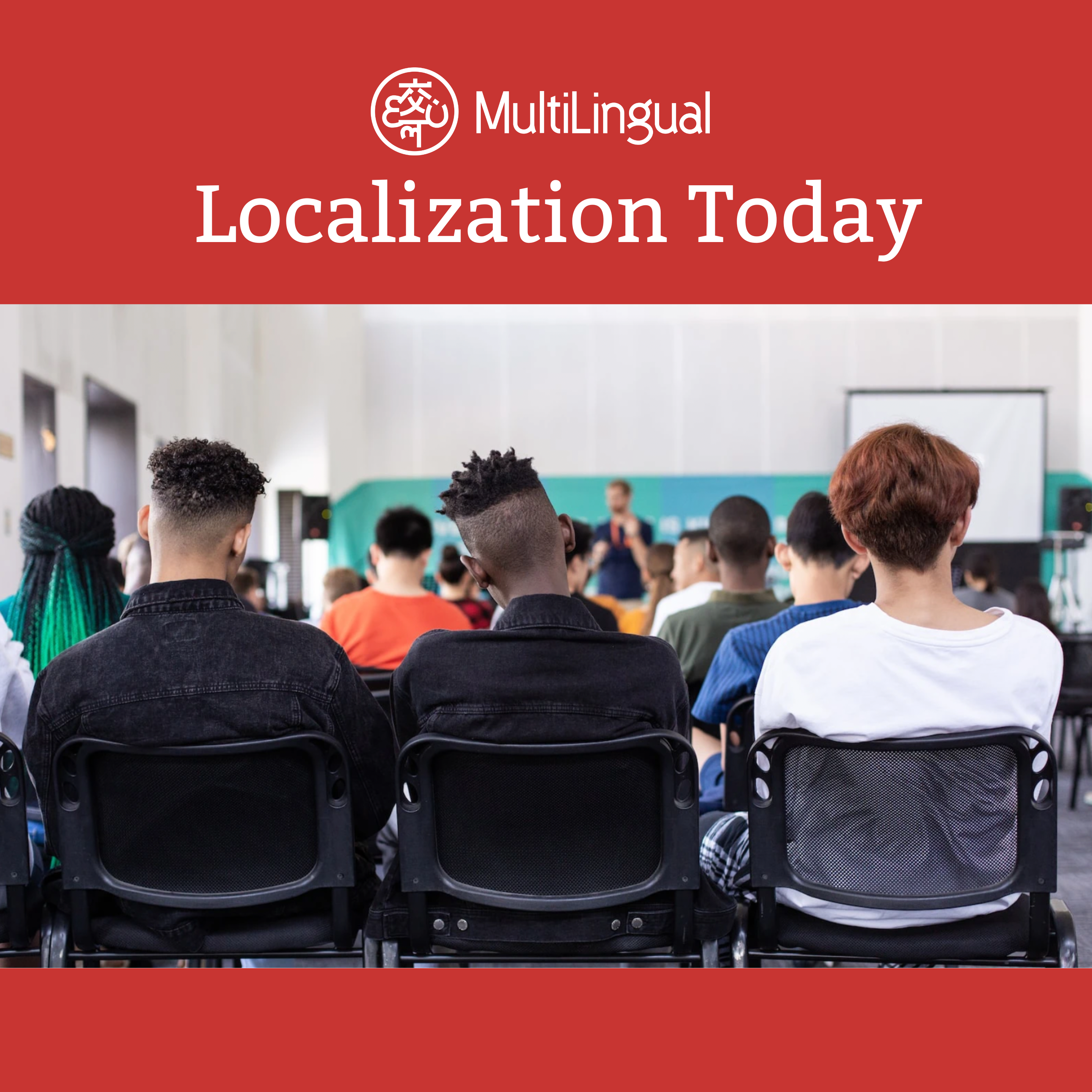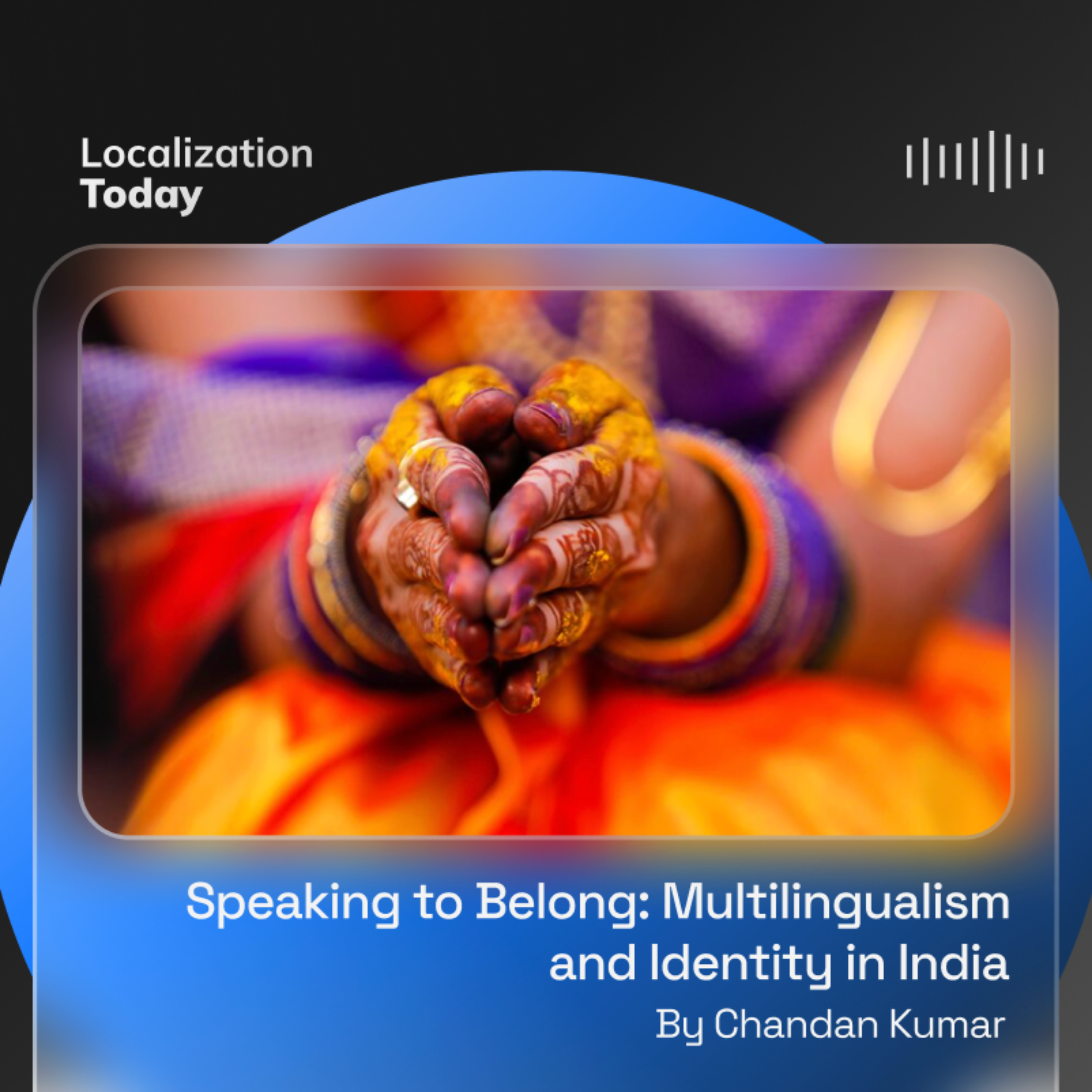Episode Transcript
[00:00:00] Speaker A: Following is our conversation with Paul Barth, strategic account director at RWS. We talk about his career path and RWS linguistic AI solution Evolve, which recently won the Machine Translation Innovation Award at the 2024 AI Breakthrough Awards.
Thanks for listening.
[00:00:19] Speaker B: So, my name is Paul Barth. I am a strategic account director at RWS. Been in the industry for about 30 years, so seen a lot of change happen over time. One of the things I love about my role is being able to come to my clients with new solutions to drive value. That's really what I look at, and I look at it across the entire RWS technology stack, as well as services offering with evolve, now that it's starting to go into production, amazing technology, where we're going to begin utilizing large language models to actually do auto post editing. And the beauty of this approach is that we're going to leverage the existing technology, which would be our language Weaver adaptive engines.
Then we add an LLM on top of that to do the Mtqe. Right. Which I know the market's been talking a lot about that, analyzing and evaluating the quality of the output of the machine translation. Right? So a green, yellow, red.
Once that happens, though, then we take it a step further. Then we take the yellow and the red segments, and we send those to a different LLM to actually repair or translate. Right. We have the LLM translate that content to try to get it to green. Then it gets fed back in to the original LLM, and we re score it. And we've actually found we do that three times. And the reason we do it three times is we found that that's the most efficient process we can get the most change. And we find also is after three times, if the LLM can't get it right, you might as well just go to human, right? Give up, right? You're just spending money then. So the beauty of this is it allows my clients to leverage the new technology that's out there to help drive efficiencies across the board, right? So they're leveraging the entire RWS stack, right. Toratos enterprise for the TMS language Weaver the evolve LLMs with a human in the loop at the end. And that's very important, right? And we've heard a lot about that today or the last couple of days at loke world is, is that the human in the loop is still very important when you're dealing with LLMs. And that review allows me to give my clients the confidence that the quality is not going to be affected. So at the end of the day, I'm delivering better results. Right. Faster, cheaper, same quality, so that they can actually do more. And that, that's the beauty of it. That's, that's what I, that, that's what's getting me up in the mornings. I look at it as what we found with post editing. So let's go back five or six years when neural mt really got going, and we, we just, we saw that the translator role started to become more of a post editing role. I think we're seeing the same thing.
The reviewers now are translators. Of course they're linguists, but at the same time they're doing something different. They're not translating from scratch in most cases, right? Maybe they're editing, maybe they're just tweaking, maybe they're just proofreading. But at RWS, we made the conscious decision about a year ago to begin calling our translation community language specialists because we recognize that that model is changing a little bit. You know, RWS has over 1700 internal linguists, right? So we're very, very in touch with that community, and it's a very important group. So the thing we recognize is you still gotta have that human in the loop. And I think we've heard that in multiple sessions here, that it's very, very important to do that in order to maintain that quality.
So, for existing clients, no, it's very much. I mean, it's an investment. It's an investment on both sides, right. So it isn't something that people will just opt in or will just turn on, if you will. It's very much of coming together, talking through it, discovering what their particular needs and goals are. Right. And then determining, okay, how do we begin to implement this? Because it is, it's an investment.
There's some elements here to where you can enhance the overall efficiency, but you need to clean your assets. So there's some work that has to be done there. I think, for new clients, I mean, it's very much of sitting down and understanding, once again, what are you trying to do? How much volume do you have? How much do you use mTpe today? Do you even use MTPE today? And if you don't, okay, well, let's, let's, let's build a path for you to get there, and we'll utilize, evolve on the back end as we migrate that path. So it's, to me, we're still early days, right? Still getting up and getting running. But it is very, very exciting.
[00:05:40] Speaker A: Great. 30 years in the industry.
What does evolve mean in that entire.
[00:05:47] Speaker B: Landscape of the evolution?
You know, I've seen the evolution of cat tools, right? So when I started, there was no cat tool, then MT and now evolve. Right. I think it's exciting. I think. I think people in this industry should be excited. They should embrace it.
Yeah, it may be a little scary, right? But it's not, it's. It's going to have an impact, but I think it's going to be a great impact for us. I think it's going to elevate localization buyers or localization personnel inside of organizations. I think they're going to get more attention.
I think the C suite is going to start recognizing the value that these people bring to the table, and I think today they probably struggle to get that. So the way I look at this, I think this is amazing technology that's really going to help this overall industry. And I mean, I'm not a translator, right? So I take this with a grain of salt, I guess, but I mean, at the end of the day, it's change, but this change is not going to. It's. I think we can embrace change or we can be afraid of change, right? I think we need to embrace it just like we did neural mt, just like we did cat tools, right? For those that weren't around before cat tool or were around before cat tools, it's kind of the same thing. I see this just becoming, you know, maybe they become a special, you know, a specialized reviewer and editor, and if anything, they're going to, I think, expand their overall knowledge and their overall approach as they work with more and more content. And I think, if anything, my hope and prayer is this blows up the content, right? That we start seeing more and more and more content. Because let's face it, we're at the very tip, right? We barely translate the content that's being produced out there. So if we can take this use, evolve, and that world and start to incorporate and grab more and more content, that's good for everybody, right? I mean, at the end of the day, that's a good thing. That's the way I look at it.
[00:08:17] Speaker A: And that was our conversation with Paul Barth, strategic account director at RWS, when we were recording a log world 51 in Dublin, Ireland. The first part of our recording was not recorded because for some reason, our microphone was disconnected. And Paul Barth was such a great sport. So I want to thank him for taking the time to redo the first part of the interview and come up with similarly brilliant answers. So thank you, Paul, and thank you all for listening to localization today. My name is Eddie Arrieta, CEO of multilingual magazine. Goodbye.


